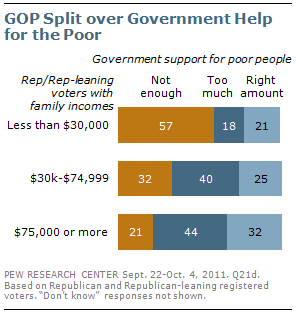Leftists of all stripes have historically seized upon a romanticized notion of class consciousness. Campaigners, theorists, and supporters talk about the working class as having unified interests and a consciousness that tends towards resistance of bosses and the wealthy. Identity politics of various sort smashed through this simplistic notion on the left. Identitarians pointed out that gender, race, sexual orientation, disability, and so on combine with class to generate unique consciousnesses that are much different than the reductive one assumed by the class-focused leftists.
In addition to those mainly left-focused critiques, commentators have observed that working-class people often politically align in ways totally counter to what a leftist would predict. Poor and working-class whites regularly line up behind the Republican Party despite the party’s somewhat obvious leaning towards the interests of the wealthy. My running theory to explain this has been that political beliefs are far more reflective of socialization and culture than of identities or contemplation. But a Pew poll out today provides a reason to think I am wrong, and gives hope to the proponents of theories of class consciousness.

Pew pollsters asked Republican voters whether the government does enough for poor people, and a very marked class-based pattern of answers resulted. The poorer a Republican is, the more they think the government does not do enough for the poor. The wealthier a Republican is, the more they think the government does too much. This does not of course mean that poor Republicans are closet communists or anything like that. But it does suggest that despite assumed political identities and cultural positionality, an individual’s material conditions do affect their consciousness and how they think about political issues.